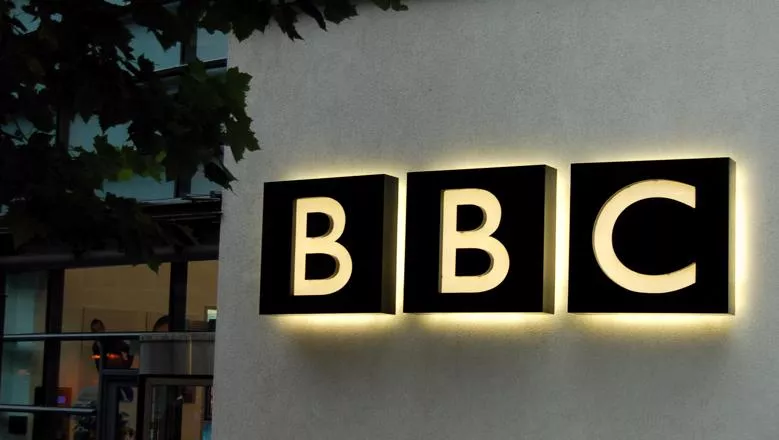It certainly gave me more insight into the mechanics of how a company like BBC Monitoring operates, something that you need to see first-hand to really get a solid grasp of.
Henry Levinson, MA International Peace & Security
23 February 2021
Students go behind the scenes at the BBC
War Studies students were given a behind-the-scenes tour of BBC Monitoring as part of exploring careers in media and journalism.

Six MA students from the Department of War Studies were recently invited to join BBC Monitoring, a division of the BBC that monitors and reports on media worldwide. During the day, students attended that day’s editorial meeting, as well as getting the opportunity to speak to BBC editorial leads and journalists from all over the world.
The session, held once a term, allows students to gain insight into opportunities and careers aligned to media, journalism and open-source intelligence, particularly related to knowledge and skills gained from their War Studies degree. It also aims to highlight career paths in media that don’t necessarily require journalism training, but rather transferable skills students have developed during their time at King’s.
BBC Monitoring observes, translates, analyses and summarises media from across the globe, helping users to better understand world events. All War Studies students get access to BBC Monitoring’s database, which contains three million items including translations, summaries and insight, via the website. (Please contact the Student Experience Officer to gain access)
The students have such a lovely energy and they really raise the spirits of the editorial teams here.
Nick Reynolds, Business Development Manager, BBC Monitoring
The event normally takes place at the BBC Monitoring area of the BBC’s headquarters at New Broadcasting House in London but was held as webinar on this occasion due to the Covid-19 pandemic.
The opportunity to visit the BBC and meet the team occurs twice a year. Students will be contacted by email when the next round of applications opens.
Henry Levinson and Clara Didier share why they applied for the opportunity and what they gained from the experience:
Henry Levinson, MA International Peace & Security student:
Why apply?
I applied because I’ve used BBC Monitoring for a few of my previous jobs and have always really enjoyed their analyses and insights. Getting a chance to see how their team works to research and create their products was an opportunity I could not pass up.
Takeaways from the day
I learned a lot about how the organisation collaborates and shares its knowledge. I really enjoyed sitting in on their morning round-up, where team members share updates on their individual regions, and highlight developing situations to watch.
My favourite part of the day was meeting the Nairobi office. I work as a part-time copy editor with a news analysis organisation based in Addis Ababa, so getting to learn about the team's work was very valuable. I was astonished by the breadth of their news analysis and sources, and their focus on analysing the role of social media in East Africa's political landscape.
How has your degree helped you learn about media and journalism?
War Studies has opened my eyes to media and journalism by providing new insights and filling in the blind spots of the 'big picture'. I came into this degree with a background in peace and security, but with very little journalism experience. The Department has presented some really amazing opportunities to engage with experts in the field and gain insights on new perspectives for those interested in journalism, media and conflict.
Webinar insights and future career
The session certainly gave me more insight into the mechanics of how a company like BBC Monitoring operates, something that you need to see first-hand to really get a solid grasp of.
The relationship between monitoring organisations and clients was something I knew little about and getting a glimpse of that landscape has expanded my understanding of where job opportunities are.
I think a lot of students have difficulty applying their passions into professional spaces. I felt like this really showed me how I can find compelling and rewarding work outside of a narrow scope that myself and many other students often get stuck in.
Clara Didier, MA International Relations student:
Why apply?
My professional goal is to become a journalist, specialised in conflict areas, and being able to witness how journalists work really interested me.
I listen to the BBC on a regular basis and so the monitoring part intrigued me, as I didn’t know it existed and what its purpose is - so curiosity also motivated me to apply.
Takeaways from the day
We witnessed an editorial meeting which was really interesting in seeing how journalists work in real life.
I have also been reassured that to become a journalist it’s not necessary to attend a specific school of journalism. Perseverance and intellectual curiosity are two vital qualities to become a journalist, which was evident in the journalists we got to speak to from countries such as India, Russia, UK and the Middle East.
Webinar insights and future career
I am now looking for internships in journalism and at the BBC. I hope that in a few years I’ll be able to apply to integrate into BBC Monitoring as I really enjoyed how they worked.
Recently, I had become undecided as to if I still wanted to become a journalist but this webinar reassured me and showed me that journalism is a malleable job which includes a wide variety of professional careers.
